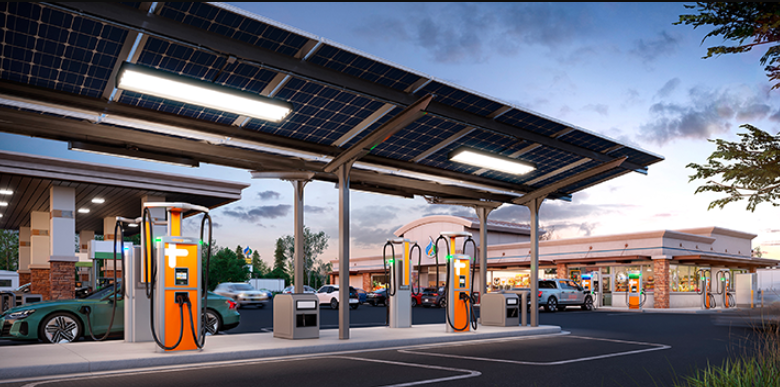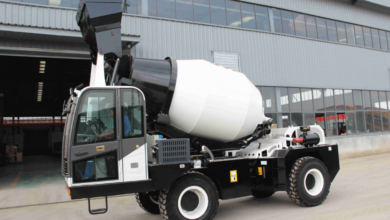Revolutionizing Electric Mobility with dc charger ev Solutions

The electric vehicle (EV) revolution is in full swing, and with it comes a growing demand for advanced, fast, and efficient charging infrastructure. One of the most transformative components in this landscape is the dc charger ev. As electric mobility gains pace worldwide, these chargers are setting the benchmark for convenience, power, and scalability in both public and private charging setups.
In this article, we delve into what makes a dc charger ev a cornerstone of modern electric transport, its working mechanism, the benefits it brings, installation insights, and the trends shaping its future.
What Is a dc charger ev?
A dc charger ev is a high-powered electric vehicle charging system that supplies direct current (DC) electricity directly to an EV’s battery. Unlike standard alternating current (AC) chargers that depend on the vehicle’s onboard converter to convert AC to DC, the dc charger ev performs this conversion within the charger itself and feeds the battery directly. This bypass dramatically increases the speed of the charging process.
DC chargers are essential for situations where fast turnaround time is critical—highway stations, commercial fleet depots, and urban hubs with heavy traffic volumes all rely heavily on this type of charger.
How Does a dc charger ev Work?
Understanding the functionality of a dc charger ev helps clarify its significance. When you plug an EV into an AC charger, the power goes through the vehicle’s onboard converter before reaching the battery. This limits the charging speed to the onboard converter’s capacity (usually 3.3–22 kW).
On the other hand, a dc charger ev:
- Draws AC electricity from the grid.
- Converts it to DC within the charger.
- Sends the DC power straight to the battery, bypassing the onboard converter.
- Uses smart systems to monitor battery status and regulate power flow.
This direct approach reduces charging time significantly, especially for vehicles with large battery packs.
See also: How Quick HIV Screening Dubai Helps You Take Control of Your Sexual Health
Key Advantages of Using dc charger ev Units
⏱️ Rapid Charging Times
One of the main appeals of the dc charger ev is its ability to charge vehicles up to 80% within 30–60 minutes, depending on the charger’s power level and vehicle compatibility.
⚡ Ideal for Public Charging Infrastructure
DC chargers are essential for long-distance EV travel and urban environments where time is a limiting factor. Installing them at rest stops, airports, and commercial centers ensures EV drivers can recharge quickly.
💼 Fleet-Ready Technology
Companies managing EV fleets benefit from the quick charging capabilities of dc charger ev systems, helping reduce vehicle downtime and improve operational efficiency.
📲 Smart Integration
Most dc charger ev units come equipped with IoT capabilities, allowing real-time monitoring, mobile app control, payment processing, and software updates over the cloud.
♻️ Supports Clean Energy Goals
DC fast charging infrastructure aligns well with renewable energy initiatives, particularly when paired with solar panels and energy storage systems.
Typical Installation Sites for dc charger ev Systems
🛣️ Highways & Expressways
Ultra-fast chargers along highways reduce range anxiety and encourage EV adoption among long-distance drivers.
🏙️ Urban Charging Hubs
In dense city environments, where overnight AC charging is not always possible, public dc charger ev stations offer convenience for EV owners.
🏬 Commercial Centers & Retail Parks
Shopping centers and supermarkets increasingly invest in DC charging stations to offer added value to customers.
🚚 Fleet & Depot Charging
For logistics, ride-hailing, and public transportation fleets, dc charger ev units allow for efficient daily operations.
Considerations for Deploying dc charger ev Infrastructure
🔌 Electrical Capacity
DC chargers require a stronger power connection and may necessitate transformer upgrades, especially in rural or underdeveloped grid zones.
💰 Investment and ROI
Though more expensive to install, dc charger ev units can serve multiple vehicles daily, making them profitable over time, especially in high-traffic locations.
📏 Site Planning
Careful layout planning is crucial—consider space for EV queuing, cable reach, and accessibility compliance (especially for commercial use).
📡 Connectivity
Choose chargers with reliable software support for network integration, remote diagnostics, and user interface improvements.
🔐 Security and Durability
Commercial-grade dc charger ev systems should be vandal-resistant, weatherproof, and include cybersecurity protections.
Innovations Driving the Future of dc charger ev Systems
- Liquid-Cooled Cables: As charging speeds increase, systems use liquid cooling to manage heat, allowing for slimmer cables and safer operations.
- Battery-Integrated Chargers: These systems buffer energy using internal batteries, reducing grid load and enabling installation in low-capacity areas.
- Vehicle-to-Grid (V2G): Upcoming dc charger ev solutions may support bidirectional charging, turning EVs into backup energy sources for buildings or grids.
- Solar + DC Charging Hubs: Integration with renewable energy for off-grid or semi-grid EV charging points.
- Contactless & App-Based Payments: Enhancing user experience through seamless digital interaction.
Leading Brands Offering dc charger ev Solutions
The global market for dc charger ev is expanding, and several manufacturers are making a mark with advanced, scalable solutions:
- ABB Terra Series
- Siemens VersiCharge
- Delta DC Wallbox
- Tritium RTM Series
- EVBox Troniq
- ChargePoint Express
These brands offer models with various output capacities and flexible features suited for everything from municipal installations to private businesses.
Final Thoughts
The dc charger ev stands at the core of the modern EV revolution. As the world pivots away from internal combustion engines and embraces cleaner transportation options, the role of fast, intelligent, and reliable charging infrastructure becomes crucial.
The ability to recharge an EV in minutes rather than hours is more than just convenience—it is empowerment. It supports commercial viability, user satisfaction, and a future where EVs are not a compromise but a first-choice solution. Whether you’re a fleet operator, city planner, or business owner, investing in dc charger ev technology is a powerful step toward a more sustainable and electrified tomorrow.




